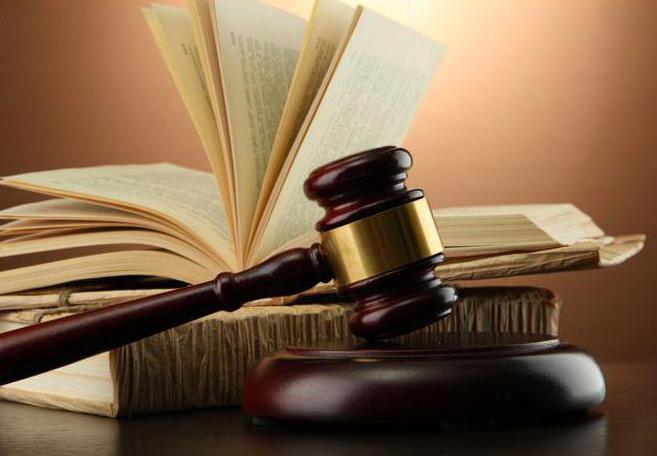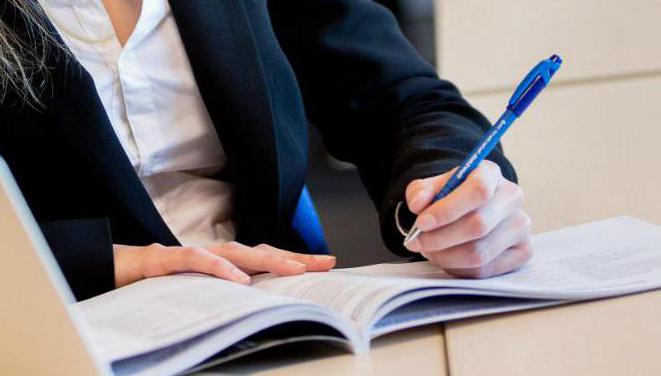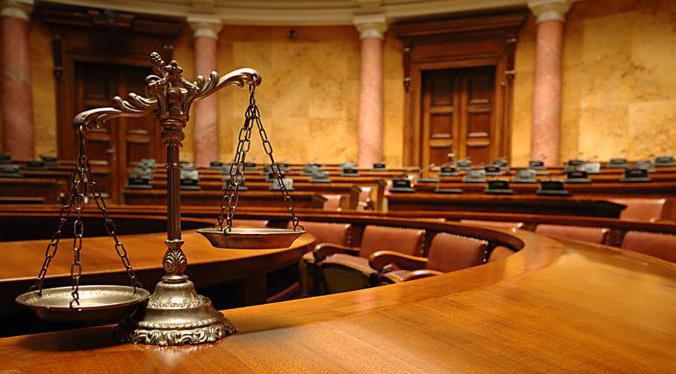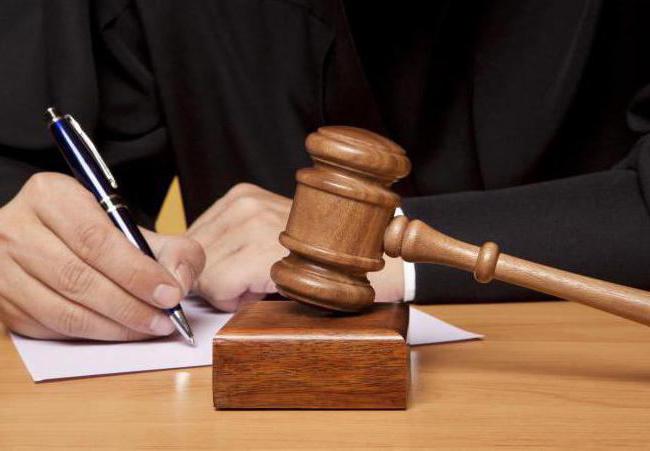Familiarization with the materials of the criminal case of persons participating in the proceedings is carried out in accordance with the code of criminal procedure. The victim and his counsel for defense must submit an application for this. The civil plaintiff and his representative can see the case only partially. After that, the accused and his counsel familiarize themselves with the materials. The latter can do this jointly or file a motion with the investigator for a separate study of the case.

Order
Familiarization with the materials of the criminal case of the participants in the process should be carried out only on the basis of the norms of the current CPC. The victim and his lawyer are the first to study them. Before familiarizing themselves with the case, they must submit a request to the investigator. The civil plaintiff, as well as his representative, can study the materials only in the part concerning the claims declared by them.
After carrying out such investigative actions, the official fills out a protocol in which he fixes the exact period of time during which the participants in the process got acquainted with the case. In addition, all comments and additions from these citizens are included in this document.
Properly executed criminal case materials are presented for familiarization to the accused and his lawyer. These persons may study them together or separately, which is supported by an appropriate petition. The accused and his counsel should not be prejudiced by the time necessary to carefully review the available materials of the criminal case.

What actions can be performed
During the study of the case, participants in legal proceedings can use technical means to copy the necessary information, as well as make the necessary extracts. The victim and his lawyer, before viewing the available materials, must submit an application to the investigator. The latter can study the case in whole or in part.
Copying sheets must be done so as not to violate their integrity. In addition, these actions are carried out only in the presence of the investigator.
According to the statement of the accused and his lawyer, a law enforcement officer provides them with the opportunity to separately study the case. In practice, this only happens if the suspect is in custody. In this situation, the lawyer studies the materials of the criminal case in more detail, takes copies of them, makes the necessary extracts, considers all material evidence, and also develops his own line of defense. You can also watch videos and listen to audio recordings.

Time
For a detailed study, the accused and his lawyer should be provided only with the updated materials of the criminal case. According to the CPC, these persons cannot be limited in time during the implementation of these procedural actions. If the accused and his lawyer drag out familiarization with the case, then the investigator can apply to the judicial authority with a statement about the establishment of a specific time period for him to study all the materials. This is done last in the manner established by the CPC. In the event that the accused and his lawyer violated the terms of familiarization with the criminal case materials established by the judicial authority, without any good reason, the law enforcement officer has the right to complete this procedural action.This is noted in the protocol.

Registration
After the investigator notified the victim and his lawyer that the preliminary investigation is nearing completion, these persons have the right to file a petition for familiarization with the materials of the criminal case. There is no specific model for filling out this document in the legislation. Therefore, it can be written in any form, but with the indication of Art. CPC, on the basis of which procedural actions will be carried out.
Request for familiarization with criminal case materials
_______________ (to the investigator, full details)
______________________ (Department of the Interior)
from a lawyer ______________________ (full data)
acting in the interests of the victim ___________________ (full name)
Address of residence _______________________
Subject to the requirements of Article 216 of the Code of Criminal Procedure, I ask you to provide me with the materials of the criminal case No. ____, filed ________ (date) in relation to ______________ (full name of the suspect) under Art. ______ of the Criminal Code.
Number ________________
Signature ___________________

In a court
In this case, the accused will no longer be able to turn to the case file again. Because this right is granted to him only at the stage of preliminary investigation. After that, the case with the indictment is transferred to the prosecutor's office, and then to the court. Nevertheless, the lawyer of the alleged attacker can re-read the materials. This is especially true if the first defender did not live up to expectations, and the agreement with him was terminated. In this case, the new lawyer has the full right to familiarize himself with the materials of the criminal case in court. Because it is necessary for him to build his line of defense and respect the interests of the client.
Protocol
This procedural document is filled out by an official in order to confirm the fact of the commission of investigative actions. The protocol of familiarization with the materials of the criminal case is drawn up by a law enforcement officer. This document is completed as follows:
Case Study Protocol
city ________ date ___________
The investigator ______________ (complete data) in the premises of the city police department ________ presented the accused and his lawyer with the materials of the case No. _________, initiated on the basis of ___________ under art. _____ of the Criminal Code.
The defense attorney filed a motion for re-examination.
Taking into account the norms of the current Code of Criminal Procedure, the defendant was explained his rights. From the last statements and comments were not followed.
Beginning of proceedings _________________
Ending ____________________________
Remarks and objections of the lawyer ________________ (indicated, if any).
Familiarized with the protocol of investigative actions:
Defender____________
Accused ______________
Police Department Investigator ___________________ (Signature Decryption)
Rights of the accused
Almost always, they are infringed by law enforcement officials. This happens especially often in cases where the accused does not have the financial ability to conclude an agreement with a good defense attorney and is forced to be content only with the help of a state attorney. The latter, as a rule, is not interested in the outcome of the case, therefore, he does not particularly support his client.
Familiarization of the accused with the materials of the criminal case always ends with the investigator explaining to the latter his right to file motions to consider the hearing:
- with a jury;
- three professional judges when required by law;
- in a special order.
In this case, the help of a professional and strong defender is very necessary for the suspect. This is especially true in cases where the accused is not to blame for the atrocity.
In addition, the investigator must state which of the witnesses from the defense needs to be summoned to the court. In the presence of unlawful actions of an official, you can file a complaint in the manner prescribed by the CPC. This is especially necessary if the accused was familiarized with the materials of the criminal case in violation of the law.
Injured
He, like the accused, has his own specific procedural rights.The materials of the criminal case are provided to him for review only if he or his counsel provides the investigator with a request. The same applies to the civil plaintiff and his representative. Most often, the victim himself claims the compensation for harm in the framework of the criminal process, because it is his right.
The victim has the right to familiarize himself with the materials of the criminal case in whole or in part. This is already decided by the investigator after receiving a statement from the latter or his counsel. These persons can make copies, make extracts, in some cases they are even allowed to examine material evidence. In addition, the victim has the right to ask the investigator to watch the video and listen to the audio recordings, if any.
Important
When studying the materials protection side of the case, close attention should be paid to material evidence. In the event that the packaging of the instrument of crime is broken, the investigator must be informed of this, and he will make this remark in the protocol. In addition, you need to carefully watch the videos. If the image is unclear and has no particular relevance to the case, then the investigator must be requested to exclude such evidence from the case. Thus, the accused and his counsel will receive the greatest chance of winning the trial.
Notification of the end of proceedings
It is carried out by the investigator at the moment when he considers that all the evidence in the case has already been collected and can be sent with the indictment to the prosecutor's office. In this case, the law enforcement officer must notify the accused that he has the right to study the materials of the criminal case. A sample of writing a petition to separately acquaint the alleged attacker and his defense counsel with the case can be taken from the investigator. If these individuals study materials together, then no application is required.
It should also be noted that the investigator is obliged to notify the victim and his lawyer about the end of the procedural actions. In addition, it is necessary to inform the civil plaintiff and his representative. If these persons cannot familiarize themselves with the case at the time set for this for certain good reasons, then this procedural action is postponed by a law enforcement officer for a period of not more than five days.
In the event that the accused, who is at large, does not come to the investigator to familiarize himself with the case without any good reason, the procedural person has the right to send these materials with an opinion to the prosecutor's office.
Nuances
An application for familiarization with the materials of a criminal case must be submitted only to those persons whose rights have been violated by a committed atrocity. The defendant and his counsel for the defense do not need to write such a request. The latter can submit an application to the investigator only if they wish to familiarize themselves with the case separately. The period of time necessary for carrying out these procedural actions is included in the period of the preliminary investigation. Therefore, if one of the participants after studying the case filed a petition, then the law enforcement officer should not resume the proceedings.
It should also be noted that all complaints about the actions of officials should be filed with the court only during the preliminary investigation.

Practice
Very often, investigators violate the rights of the accused and do it completely unfairly. In this case, the latter, as well as their defenders, are forced to seek help from a judicial authority.
Case study.
The lawyer of the accused filed a complaint against the actions of the investigator in court.During the hearing, the latter explained that a law enforcement officer significantly violates the rights of his principal, because he does not provide the latter with the opportunity to get a meeting with close relatives. During the time that his client was in the isolation ward, the mother of the latter was never able to see her son, because the investigator did not sign a single permit. Although there was no reason for this. In addition, the investigator forbade the transfer of medicines and warm clothes to the accused. All this was done so that the alleged attacker would quickly confess to the atrocity that he did not commit.
The court, having heard the arguments of the lawyer, granted his complaint. The investigator provided the accused with a meeting with close relatives.
One more example.
After the defense side examined the case materials, a petition was filed to view the video recording, which, according to the investigator, shows how the crime was committed. For inexplicable reasons, it was not reproduced in the office of the official during the proceedings. In addition, the investigator refused to provide a copy of the video, even though it relates to the case file.
The defendant’s defense counsel was forced to lodge a complaint against the actions of an official with a judicial authority. During the meeting, the lawyer supported his application and explained that his request to the investigator was based on the norms of the current law. In addition, the defense counsel stated that the official did not comply with the Code of Criminal Procedure and thereby violated the rights of his principal.
The court upheld the advocate’s position, satisfied the complaint, the video was viewed at the time of the second review of the case.

Mandatory document
Such is the protocol for the implementation of investigative actions. This document contains the persons who were acquainted with the case materials, their complete data. In addition, all comments and motions, if any, are entered in the minutes. This document is drawn up in order to confirm the fact of carrying out procedural actions. The protocol is drawn up during the implementation of any investigative measure. It fixes the start time of the procedural action, as well as the moment of its end. The protocol contains the signatures of the participants in the process and the official.